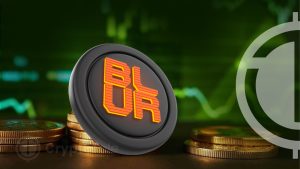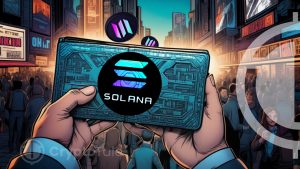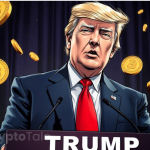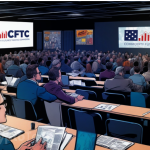
The Middle East and North Africa (MENA) region is experiencing a significant shift in its technological landscape, particularly in the blockchain and crypto industries. This transition is marked by several key initiatives and collaborations highlighting the growing interest and investment in these technologies across various regional countries.
Starting with Dubai, there is a notable collaboration between Wemade, a prominent South Korean gaming company, and the Dubai Chambers. This partnership, led by Wemade’s CEO Henry Chang and Dubai Chambers’ President H.E. Mohammad Ali Rashed Lootah, focuses on expanding the blockchain gaming ecosystem in Dubai and the UAE. This initiative marks a significant step, with Wemade becoming the first major Korean game developer to engage with Dubai Chambers, indicating a strong interest in the gaming and blockchain sectors within the region.
Abu Dhabi is not far behind with its “Hub71+ Digital Assets” initiative. With over US$2 billion in capital, this project aims to boost Web3 innovations and metaverse applications. This initiative is critical to attracting and supporting Web3 startups, providing them access to various programs and partnerships in the UAE and globally. Such an initiative clearly shows Abu Dhabi’s commitment to becoming a key player in digital assets and blockchain.
Saudi Arabia is also making significant strides with the Neom City Project, an ambitious endeavor to construct an entirely new city on the Red Sea coast, and has recently secured a substantial deal worth over 21 billion riyals ($5.6 billion) with a consortium of local investors. This development marks the third significant investment in the kingdom’s drive to diversify its economy within the past month.
According to an official announcement, four local companies under a public-private partnership agreement will develop temporary housing and facilities to accommodate 95,000 individuals. This development reflects Saudi Arabia’s commitment to advancing its economic diversification efforts through strategic investments in pioneering projects like Neom.
Another crucial factor to consider is the transition of power within the crypto market from China to the United States. The approval of the Bitcoin Spot ETF and the regulatory challenges faced by Binance contrast sharply with Coinbase’s strategic positioning through its partnership with BlackRock. This shift suggests a more US-centric crypto market, with Binance needing a significant breakthrough to maintain its position.
Richard Teng, the CEO of Binance, plays a pivotal role in this scenario. His experience and network in Abu Dhabi are crucial for Binance’s expansion in the MENA region. The company’s strategic focus on MENA, leveraging Teng’s insights, indicates its intent to capitalize on the region’s growing interest in blockchain and its geopolitical dynamics with the U.S.
The overarching trend in the MENA region toward adopting more favorable crypto policies and regulations is a noteworthy development. Countries such as Bahrain are actively participating, with Binance launching a cryptocurrency trading platform in early 2022 and implementing blockchain networks for cross-border payments.
The MENA region is notably becoming a center for blockchain and crypto activities. There are substantial investments and ongoing initiatives in Dubai, Abu Dhabi, Saudi Arabia, and other countries, leading to the development of a dynamic landscape within the global blockchain and crypto industries. This trend reflects a significant shift rather than a temporary phenomenon, highlighting the region’s dedication to actively participating and playing an essential role in these technological sectors.














